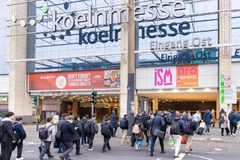Unilever’s Vaseline integrates new recyclable pump into Intensive Care lotions in North America
Vaseline will use recyclable pumps for lotions sold in North America, supporting parent company Unilever’s goal to ensure 100% of its rigid plastic packaging is reusable, recyclable or compostable by 2030.
Unilever is trying to revitalize its green commitments following an announcement in May that it would scale back its sustainability targets after falling short of some of its most ambitious goals.
Vaseline worked with a supplier to eliminate the conventional internal metal spring in its lotion packaging. The new pump does not need to be disassembled and is widely recyclable in more than half of recycling facilities across the US and Canada.
“Unilever’s long-term ambition is an end to plastic pollution through reduction, circulation and collaboration,” says Kristina Friedman, head of Sustainability at Unilever North America.
“We continue to implement bold innovations across our brands and markets that help to advance the delivery of our sustainability goals. Vaseline designing its pumps for recycling is another step in the right direction.”
Virgin plastic plan
In addition to improving the recyclability of its packaging, Vaseline is reducing its use of virgin plastic. The brand has introduced 50% PCR into all the Vaseline Intensive Care lotion bottles in North America, reportedly avoiding “over 500 metric tons of virgin plastic since 2018.”
By reducing the amount of plastic in its bottles through lightweighting, the brand says it has removed more than 130 metric tons of plastic from its packaging. It calculates these two processes combined equate to removing approximately 11 million 20.3 oz plastic lotion bottles from the market.
Vaseline is the latest of several Unilever Beauty & Wellbeing brands, including Dermalogica, REN and Garancia, to incorporate recyclable pumps into its product portfolio.
For Unilever’s Home Care brands, such as Cif, Vim, Viss, Domestos, Lifebuoy and Lysoform, the company is continuing to roll out recyclable monomaterial triggers for spray products.
Ramping pressures
In North America, Vaseline collaborates with The Recycling Partnership and the US and Canada Plastics Pacts and investments in Closed Loop Partners to support the development of local waste management infrastructure.
Last August, Unilever, the US Agency for International Development and global consultancy group EY formed the Circle Alliance, a US$21 million initiative to support plastics industry entrepreneurs who work to reduce waste.
Unilever has been heavily criticized for its hand in global plastic pollution, despite its public waste development programs. Last year, a Greenpeace report estimated that the company sells 1,700 single-use plastic sachets every second, amounting to over 50 billion a year. The sachets are often hard to recycle and sold in nations with little end-of-life infrastructure.
In February, protestors surrounded the company’s headquarters in London during its shareholder meeting, demanding a reduction in sachet production. However, Unilever has consistently defended its use of sachets, saying they are essential for product protection in hot climates and provide piecemeal quantity products to low-income economies.










